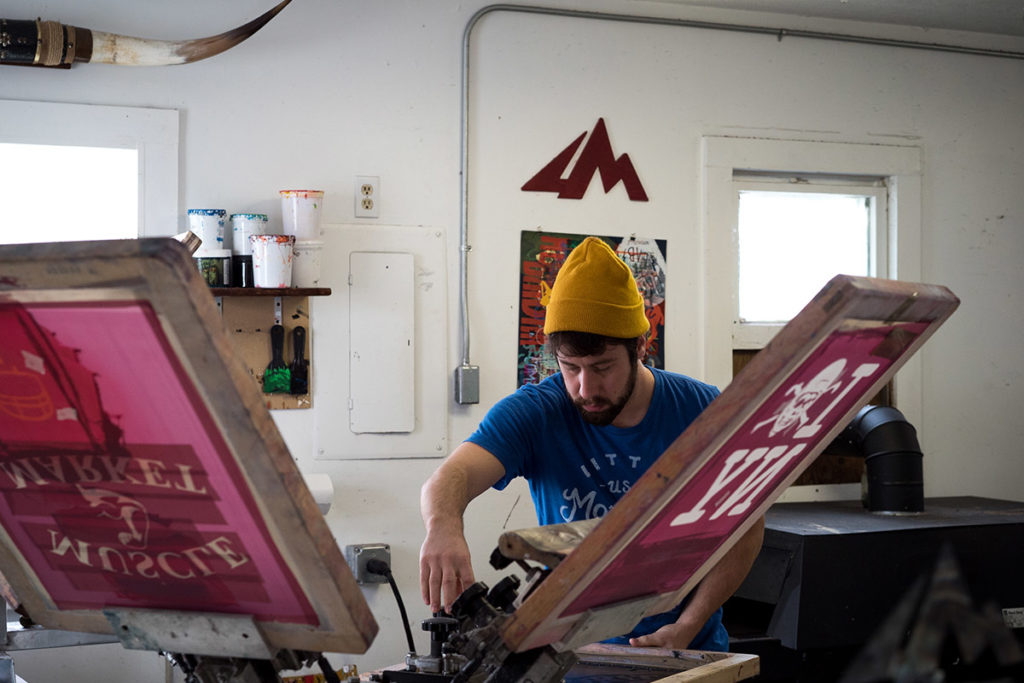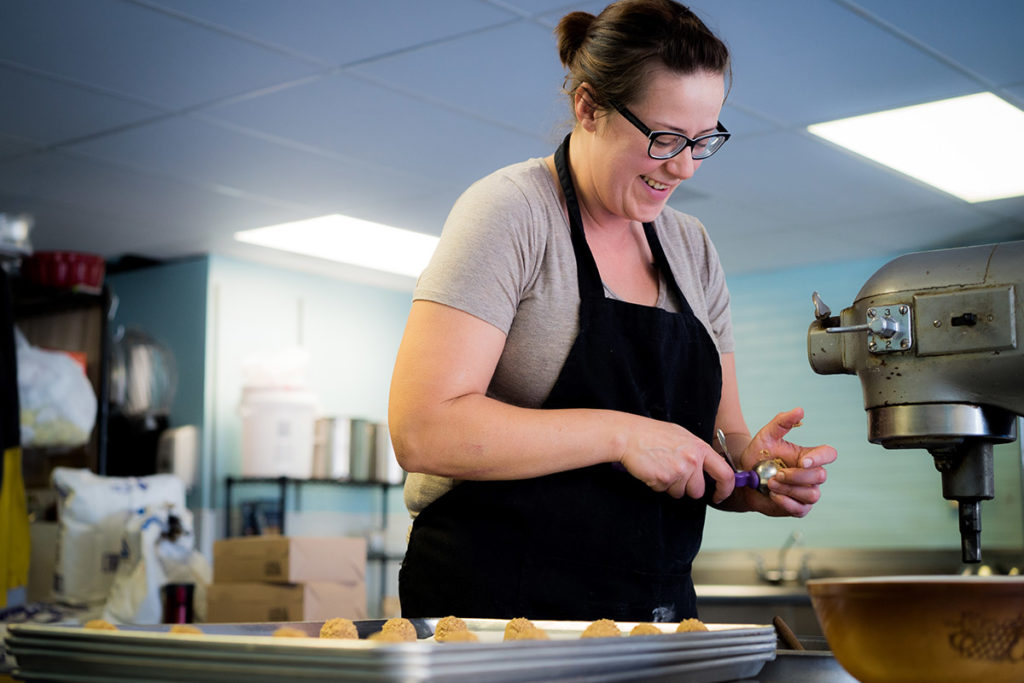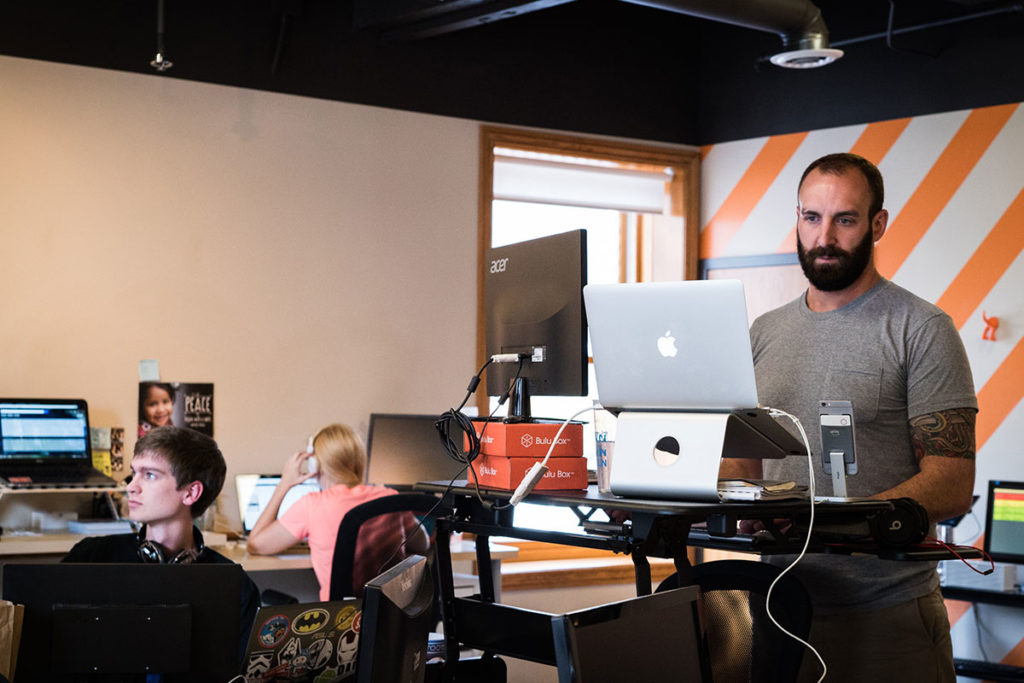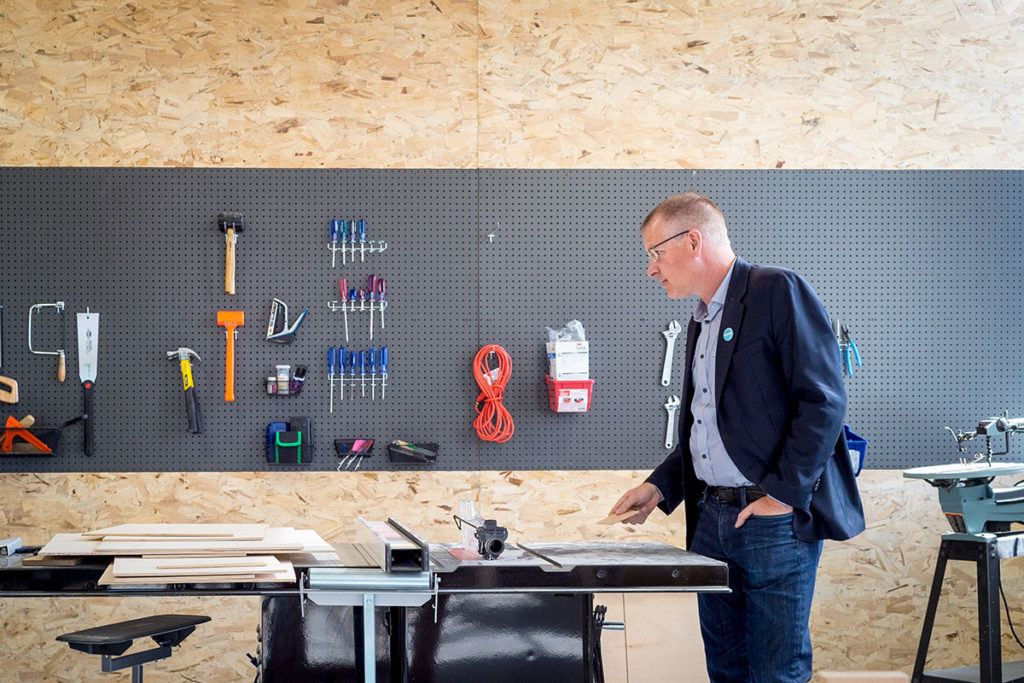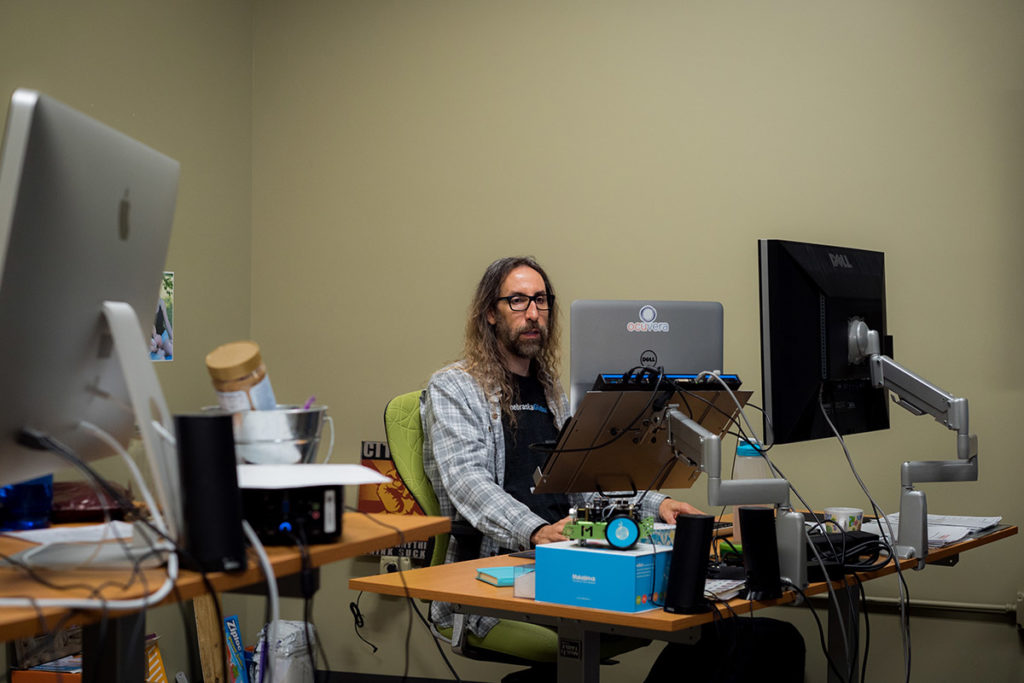
Simple, but complex. It’s a weird combination, said Steve Kiene, but it’s him. Jeans and a tshirt simple, and software nerd complex.
If you saw Steve around town, you might confuse him for another one of the tech geeks grabbing coffee before hunkering down in their office for the day. Which might be accurate in some sense, but also a gross understatement.
If you know anything about Steve’s story, then you know that well before he was the Managing Principal of Nebraska Global he was well-known in the realm of Mac software. He’s even had some pretty hardcore groupies/stalkers, no joke. But let’s back up a little.
At 11 he flunked out of summer school because he discovered “the drug” that was computer programming.
At 17 he skipped classes to hang out with programmers and turned down going to MIT because all he wanted to do was program.
And at 19 he had a job offer from Apple that he turned down.
But Steve doesn’t care about his reputation. In fact, he can be a bit of a polarizing figure in the community because he has some pretty definite opinions. His real mission, like him, is simple but complex.
Steve doesn’t want to build companies, he wants to build people.
Heard that before? Yeah, so have we. But Steve puts his money where his mouth is.
Back in 2006 he had a decision to make – keep pushing his two companies forward or sell. He sold. And while Steve said at times he questions his decision to sell MindVision and eSellerate, he never regrets what he did with the $25 million he got from the sale.
He gave half of the money to the employees who helped him build the two companies, and donated and invested much of other half in the community. For him, splitting the money with the people who had invested time and effort in his companies meant they should share in the sale, and the sheer fact that he was the sole proprietor didn’t matter.
Steve makes up his own rules, much like his dad.
As a kid, Steve would go to work with his dad who owned a heating and air conditioning business. He watched him repair systems and write up bills, oftentimes only charging people for the cost of the materials.
His dad didn’t explain why he did it, he just did what he thought was honest and right, and Steve noticed.
That’s how Steve feels about building the community by building people – he wants to do what he thinks is right and helpful, that’s it.
And he’s in it for the long, long haul.
Earlier this year, Steve and his wife became parents again. He clicked his phone on and showed me his home screen – a photo of his happy, pudgy little boy.
“This is what matters,” he said, pointing to the screen.
Steve said being a parent makes him feel like a pseudo-parent to the people he works with everyday. He feels invested in their well being, and pushes them to create things that matter, not just to fit some entrepreneurial stereotype.
Steve isn’t about smoke and mirrors. He isn’t about spinning his story to make people like him.
He’s just a guy with long hair and glasses, who cares about doing what’s right for the community both now and in the future.
Because to Steve, people matter.
